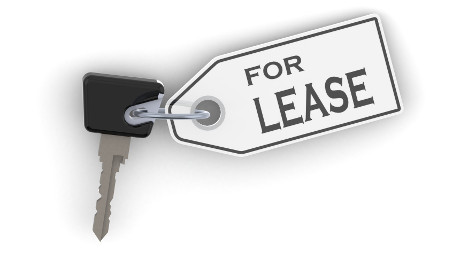July lease approvals sink to year low

By subscribing, you agree to receive communications from Auto Remarketing and our partners in accordance with our Privacy Policy. We may share your information with select partners and sponsors who may contact you about their products and services. You may unsubscribe at any time.
CINCINNATI –
While Fitch Ratings said U.S. auto lease ABS residual performance is still producing gains overall through mid-summer despite rising used-vehicle supplies, this week’s update from Swapalease.com about lease approvals wasn’t so positive.
In fact, Swapalease.com reported that the 58.3 percent approval rate for vehicle lease credit applicants in July represented the lowest single-month tally so far in 2016.
And for perspective, site officials mentioned that a year ago the approval rate reached 84.6 percent.
Swapalease.com also pointed out the monthly lease credit approval rate has reached 70 percent just once this year, and that reading arrived in February. Meanwhile, the monthly rate has dropped almost every month since then.
In fact, over the last three months, the approval rate has been just 67.9 percent, according to Swapalease.com, which also noted a recent article in The Wall Street Journal.
According to the newspaper, consumer credit increased recently by the slowest rate in four years as “nonrevolving credit, including student and auto loans, advanced at a 2.07 percent annual pace in June. That was the weakest increase since balances in the category declined in August 2011. May’s growth rate was 7.3 percent, a high for the year.”
Subscribe to Auto Remarketing to stay informed and stay ahead.
By subscribing, you agree to receive communications from Auto Remarketing and our partners in accordance with our Privacy Policy. We may share your information with select partners and sponsors who may contact you about their products and services. You may unsubscribe at any time.
Swapalease.com executive vice president Scot Hall considered both what the WSJ reported as well as the metric his firm is seeing when sharing an assessment.
“Lease rates at the dealership remain at all-time highs, and while overall sales of cars and trucks also remain high, the industry looks to be in a peak period,” Hall said in a news release Swapalease.com posted.
“It will be prudent for the industry to pay close attention to other outside indicators, including credit health and credit availability, as we move deeper into the year,” he continued.
During a conversation earlier with Auto Remarketing, we asked Hall about what finance companies and capital providers might do when they watch trends closely. Hall replied to the scenario if institutions decided to pull back and the potential ramifications not only on leasing but traditional retail installment financing too.
“It would end up being a similar situation that we ended up seeing six, seven years ago. You certainly don’t want to see that again anytime soon,” Hall said.
“Leasing is probably going to be what would be cut back first as opposed to financing,” he continued. “That’s what ended up materializing when we went through this years ago.
"Part of the reason, there is generally a similar amount of money allocated to rebates, subvented leasing or whatever the particular make and model may be, but the one thing you would take off the table by putting more focus on the financing potential is that you wouldn’t have the lease remarketing to be concerning yourself with by the manufacturer, captive finance company or any leasing company when that lease comes back in three years down the road or so," Hall went on to say.
“I would argue that it would be a significant factor for both, but leasing would be slightly ahead of the traditional financing in terms of what would be cut back and what would be taken a hard look at first,” he added.


